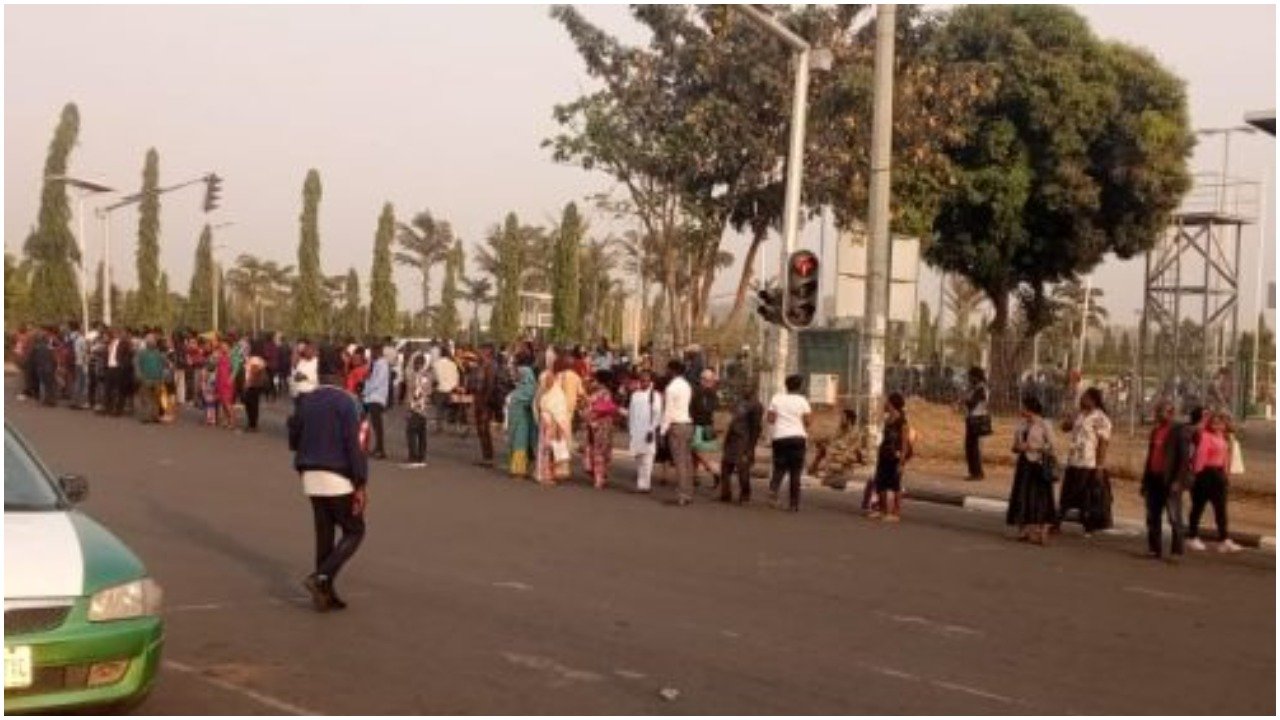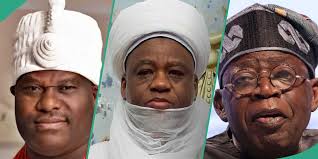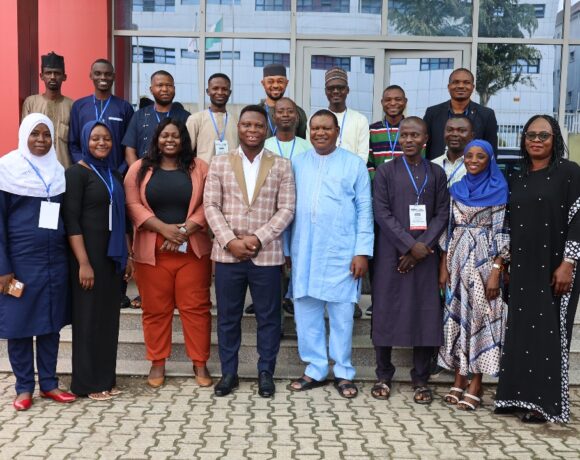Nigeria’s fuel price hike syndrome and Tinubu’s reign of pains

…Experts speak on price dynamics, way out as Nigerians groan
By Clement Adeyi
Key points
- Pains of fuel subsidy removal outweigh the gains
- High costs of goods and services soaring
- Nigerians groan, ask Tinubu to find urgent solutions
- Expert speak on poor chances of price reduction, tip CNG as way out
- Tinubu’s fresh palliatives to assuage fuel subsidy removal plight
It was on the very day (May 29, 2023) that President Bola Ahmed Tinubu was being sworn in as the president of the Federal Republic of Nigeria at the Eagle Square, FCT, Abuja, the nation’s capital, that fuel subsidy regime was ousted by his new administration. With his ‘decree’: “Fuel subsidy is gone” while he was delivering his swearing-in speech, the subsidy structure collapsed, leaving hardship, hunger, penury and diverse economic crises in its rubble. Apparently, life has never been the same for Nigerians right from the day that Tinubu’s administration came on board.
Groaning Nigerians say that it is a reign of pains occasioned by blatant hike in fuel price and underlying outrageous costs of goods and services that instantly trailed the subsidy removal.
Most painful is the high cost of food stuff and transport fares which are the people’s basic daily needs.
No sooner the removal of subsidy was announced by the president than fuel price that had stood at N195.00 climbed to N537.00 per litre.
While Nigerians were trying to acclimatize with the painful realities of the new price hike, the NNPCL slammed another 15 percent increase of N617.00 per litre price; the last straw that broke the camel’s back. And the hardship triggered by the skyrocketing price tripled the hitherto situation and condition.
Nigerians react:
A couple of poor masses spoke to The Insight about the pains that fuel subsidy removal has brought on them.
A Federal Government agency retiree in Nyanya area of Abuja, Alhaji Mohammed Bawan Allah, said: “It is not rise in transport fares that is the only economic effect of exorbitant price of fuel. The hike triggers rise in price of other goods and services and degenerates to general inflation.

Many Nigerians now trek as fuel price increases. Imagecredit: online
“Since the removal of oil subsidy, transport fares have increased relatively. Prices of goods and services have tripled since the latest 15 percent price increase to N617 per litre. We can not continue like this. The suffering is too much.
“Tinubu promised government of hope. Now he has shattered our hope. He must do something urgently. All he said in his address to Nigerians a few days ago, the last day of July are mere promises. Nigerians want urgent solutions to the subsidy removal. Enough is enough.”
A cleric in a Pentecostal Ministry in Mararaba, an outskirt of the FCT, Pastor Vincent Abraham, said:
“Buhari made us to suffer for eight years. As soon as he left, Tinubu who we thought could deliver us has continued the string of sufferings from where he (Buhari) stopped. When will Nigerians, especially we that are poor come out of these pains? Who will take us out of the wahala?
God, please send us another Moses that can deliver us from these pains. You can even use Tinubu as the Moses of our time.”
A trader, Ebenezer Solomon, said
“We learnt that Tinubu has opened borders. But prices of food stuff are still increasing. A bag of rice that used to be N29,000 is now N45,000. If nothing is done about this subsidy removal, prices of things will still increase. So, when shall we see the end? When shall the hardship be over? No amount of distribution of grains to Nigerians households promised by Tinubu can solve the problem. How many people can have access to the grains when state government officials that will handle the distribution may not even be credible?”
A transporter, Donatus Okafor, in Berger area of the FCT said: “The buses promised by President Tinubu to cushion the effects of transport fare hike is a right step in a right direction. But after sometime, the system may be abused and phased out. If it must work, government must put the right mechanisms in place to monitor the operations and serve the masses well. Enough is enough of these sufferings.”
A food stuff seller in Wuse 2 area of the FCT, Mrs Juliet Hassan said: “The most shocking increase in price of goods is the N45,000 price of a bag of rice which sold for between N29,000 and N30,000 before the fuel price was increased to times three of the former price. If nothing is done about the subsidy removal, a bag of rice may become N100,000 during Christmas.”
A petrol attendant at MRS fuel station in Osogbo, the Osun State capital, Miss Dupe Aboderin, told The Insight that the hike in the product’s price did not affect patronage, compared to the patronage level before the subsidy removal.
“When the subsidy was removed, the price was increased to N617.00 per litre. But here and other stations in Osogbo, we were selling at N585.00. After some weeks, we started selling at N520.00. That is the current price we are selling. So, we still get a good number of customers.”
Although fuel subsidy removal has negatively impacted the economy, with businesses facing challenges in operations, production, profitability, job losses and slower economic growth, Tinubu is basking in the euphoria of the gains of the subsidy removal, that barely two months after the development, Nigeria had saved over a trillion naira.
“In a little over two months, we have saved over a trillion naira that would have been squandered on the unproductive fuel subsidy which only benefitted smugglers and fraudsters. That money will now be used more directly and more beneficially for you and your families,” the president had said.
Determined to proffer solutions to the crisis, Tinubu came up with some strategies to reposition the economy with a view to ameliorating the hardship. He unveiled the strategies in his nation-wide broadcast on July 31.
While acknowledging the suffering by the masses, he said:
“Our economy is going through a tough patch and you are being hurt by it. The cost of fuel has gone up. Food and other prices have followed it. Households and businesses struggle. Things seem anxious and uncertain. I understand the hardship you face. I wish there were other ways. But there is not. If there were, I would have taken that route as I came here to help not hurt the people and nation that I love.”
Our economy is going through a tough patch and you are being hurt by it
In the nation-wide broadcast, Tinubu came up with some proactive solutions to the fuel subsidy removal pang being faced by the masses, some of which include the following:
Immediate reduction of the burden imposed by current economic situation
Federal Government synergy with
states and local governments to
implement interventions to cushion economic pains
Strengthening the manufacturing sector for job creation, energising the micro, small and medium-sized enterprises and
the informal sector as drivers of growth with N125 billion
Investment of N50 billion on
conditional grant to 1 million nano businesses between now and March 2024, sharing of N50,000 each to 1,300 nano business owners in each of the 774 local governments across the country
Engaging various farmers associations and operators to ensure that prices of food items
remain affordable.
Ensuring of availability and affordability of staple foods through approval of 200,000 metric tonnes of grains from strategic reserves to
households across the 36 states and FCT
Provision of 225,000
metric tonnes of fertilizer, seedlings and other inputs to farmers for food production and security
Approval of infrastructure support fund for states to intervene and invest in critical areas to relieve pains and revamp decaying healthcare and educational infrastructure
Rolling out buses across the states and local governments for mass
transit at affordable rates
Investment of N100 billion between now and March 2024 to acquire 3,000 units of 20-seater CNG-fuelled buses, introduction of new national minimum wage for workers, granting loans to tertiary institutions students to avoid drop out syndrome.
Experts speak:
Although the factors that shape
the astronomical rise in price of PMS seem insurmountable, there is some measure of optimism that the price would soon stabilize at a modest rate.
But Petroleum expert, Suraj Oyewale, opined that the price could never be stable, following price dynamics in the global market. “I don’t think we can ever have a stable price of fuel either in Nigeria or in the global market. In the first instance, all petroleum products are from crude oil which prices can not easily be determined because they are not fixed. They change from time to time, depending on factors that influence the changes. It is crude oil that is refined to fuel. For instance, the price of refining could vary from N80 to N100 dollars.
I don’t think we can ever have a stable price of fuel either in Nigeria or in the global market
Another price component is transportation of importation which is also influenced by the instability of the price of dollar. A refiner or importer determines the price at which to sell the product based on the cost implication of refining and importation.”
He added: “Therefore, the Federal Government of Nigeria can not guarantee a downward review of the price of fuel as being clamoured for by Nigerians.
Government can not tell anybody how much crude oil can be sold. It is the market forces that can determine the price. Government can only communicate its own price to the NNPCL but can not influence other oil companies by imposing any price on them.”
Oyewale, however, suggested a way forward on how to crash fuel price. He said: “Government can bring down the price of fuel by increasing supply; that is, pumping more product into the market maybe through local refining, but not by fixing a common price. This, however, depends on the price at which the supply is effected.
“While also speaking on whether fuel price could drop if Dangote Refinery takes off, Oyewale said:
“Dangote Refinery will be buying crude oil, depending on its price at the global market. Even if the company might want to start selling at a low price, it might be difficult for it to fix a low price in the next one to two years. This is because the company can not buy the product at a lower price than other companies are buying at the global market. Crude oil has its prices in the international market.
Dangote Refinery has a lot of costs that are denominated in dollars. These may include loans taken which have to be paid, the equipment and expatriate engineers that the company is going to use, the cost of refining. All these are all priced in dollars and would go a long way in determining the price of the product at the end of the day. So, there is no way Dangote Refinery can sell fuel at a price that is significantly lower than the current price in the market, let a lone in six months, one or two years time.”
Oyewale added that the cost of production by Dangote Refinery might even increase based on other underlying factors.
“Dangote Refinery can not refine all the quantity of fuel that Nigeria needs because for now, it only has a capacity to refine 665,000 barrels per day. There is no way it can hit the full capacity immediately it takes off. Even if it can bring down the price of fuel, it can not be in a short term but in a long run because the company may not go into full capacity immediately.
Oyewale also ruled out the chances of fuel price drop even if the three refineries in Kaduna, Warri and Port Harcourt are fixed.
Even if the Kaduna, Warri and Kaduna refineries are rehabilitated and take off ful blast, the price of fuel may not drop significantly because, they can only refine 445,000 barrels per day which is still below what Dangote Refinery can refine in full capacity. So, the three refineries can not even feed Nigeria even if they operate in full capacity. They can’t add much value to the supply needs required by Nigerians. Therefore, there can’t be a major drop in the price of fuel. Perhaps a drop in the neighborhood of N10 or N20 may occur.”
He added: “Although Dangote Refinery and the three refineries put together if they operate in full swing may make a significant difference in price reduction, but this may not happen in the next one year.”
Oyewale however, suggested a way forward on the fuel price hike.
“CNG can be a good alternative to PMS. If CNG is adopted, there will be less demand for petrol and the price may drop.”
“People are rationalizing use of vehicles to cope with the price hike. Many people have started dropping their vehicles at home and leveraging public transport. This may lead to a little drop in price because there would be less demand for the product.”
Speaking on certain factors that account for perennial fuel scarcity and underlying price hike, Oyewale pointed out that fuel production had been a perennial challenge across the globe.
“Nigeria has been struggling to produce above 1 million barrels per day, especially because of vandalisation of tools. This is even below the quota given to us by OPEC. OPEC quota influences supply and price. Although OPEC does not have the capacity to fix fuel price, it can only influence pricing by influencing supply. It does this by requesting producer countries to increase supply to the market at the rate determined by its (OPEC) headquarters.
“There is no good news in the area of our (Nigeria) performance in the global market. Over the years our supply capacity has been two million barrels in the export market and there may be no improvement soonest.”
The Chairman of Skymark Energy and Power Ltd, Muhammad Saleh Hassan, said that the only way out of fuel price hike trend and scarcity of the product is shift to CNG as alternative.
CNG refers to Compressed Natural Gas. It is a gasoline and diesel fuel alternative that primarily consists of methane. The gas is associated with other fossil fuels (coal or oil) and created by methanogenic organisms in landfills. It is extracted from the source and compressed to a high pressure where it can be stored in a vehicle fuel tank.
Hassan added that with this disparity and marketers’ penchant to determine price and make profit, stability of the price remains dicey.
He stressed that the CNG was not only the ultimate substitute to the PMS, but also the cheaper alternative to it and called on government to go for it.
The Skymark Energy and Power Ltd boss said that, owing to incessant fuel scarcity and price instability, the Group Chief Executive Officer (GCEO) of the Nigeria National Petroleum Corporation Ltd (NNPCL), Malam Melee Kyari, had earlier proposed CNG to replace PMS as a way to proffer solution.
“In view of the current reality and dynamics in the energy sector, especially the seeming unavoidable price hike, the Federal Government under the administration of President Bola Ahmed Tinubu should consider it imperative to implement the CNG proposal and save the citizenry the hell that they are passing through in the wake of the fuel price hike,” Hassan noted.
He called on the Presidential Policy Advisory Council to carry Kyari along in all the decisions they take in the energy sector, especially importation, marketing and price of fuel.
“It is a pleasure that the Federal Government has generated some trillions of naira within a short period after the fuel subsidy was removed. Subsidy removal money should be invested in NNPCL as it would add more premium to the company, especially when government is selling out the shares. So, it is better to invest the money on NNPCL to drive the CNG programme so that even if it is sold to private owners, the dividends would still remain in the system.
It is possible to create CNG pension and convert vehicles to CNG. The NNPCL has a spectrum of programmes for the CNG as designed by Kyari.
The Insight Report
Nigeria Coverage



